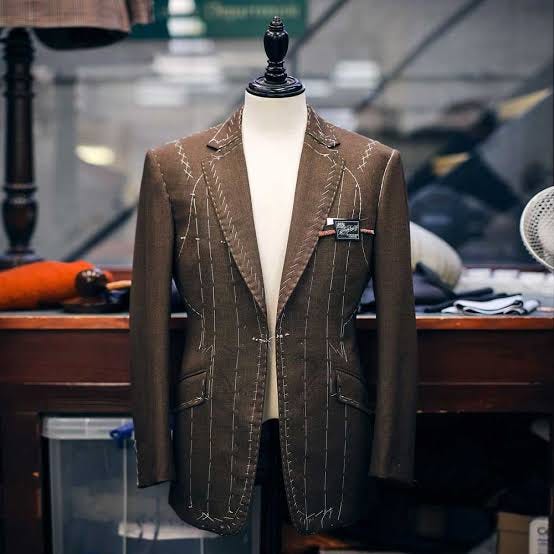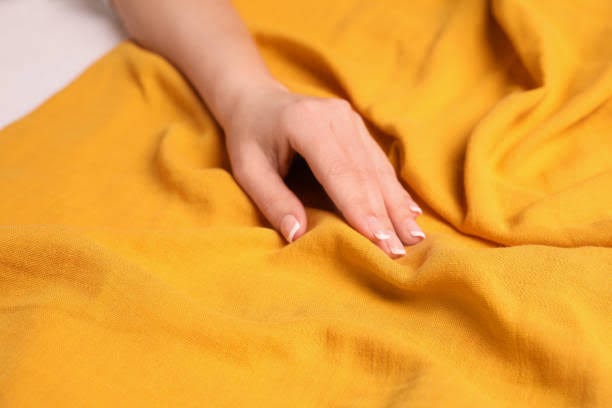Step into Savile Row, and you will find names that shaped the silhouette of British elegance. Yet beneath the shears of every legendary tailor lies another name, woven quietly into every suit of power: Scabal.
Founded in 1938 in Brussels by Otto Hertz, Scabal began as a fabric merchant supplying the finest cloth to Europe’s top ateliers. Over time, it evolved into something greater; a silent architect of style, whose textiles have clothed kings, statesmen, and silver screen legends. From Winston Churchill to Marlon Brando, the name Scabal became synonymous with refinement at its purest level.
But Scabal’s mastery extends beyond softness and drape. Its legacy is one of innovation, heritage, and a commitment to weaving cloth that carries not just comfort, but quiet authority. This is the story of the house that created the world’s most expensive suiting fabric, championed wool-silk blends before they became standard, and remains the hidden signature inside garments that shape history.
Scabal’s story begins in 1938 when Otto Hertz founded the company in Brussels, envisioning it as a supplier of only the finest fabrics to Europe’s tailoring elite. The name itself stands for Société Commerciale Anglo Belgo Allemande Luxembourgeoise, reflecting its founder’s ambition to bridge continental craftsmanship with British sartorial heritage.
During the post-war years, Scabal quickly established itself as a purveyor of excellence, supplying cloth to Savile Row houses who demanded nothing less than perfection. By the 1970s, Scabal had expanded its operations to include its own weaving mill in Huddersfield, England, which was a region synonymous with the world’s best woollen textiles.
This strategic acquisition allowed Scabal to control every aspect of production, from fibre selection to final finishing. It was here, in Yorkshire’s moorland air, that Scabal began innovating cloths that balanced luxury with performance, creating suiting fabrics of unprecedented lightness, drape, and resilience.
For Scabal, these early decades cemented its identity as more than a merchant. It became a house of textile artistry, committed to ensuring that every metre of cloth carried a signature of dignity and quiet grandeur.
Scabal has never been content with merely maintaining tradition; it has consistently pushed the boundaries of what luxury suiting fabrics can achieve. Among its most famous innovations is “Diamond Chip,” a cloth woven with fragments of actual diamonds, adding a subtle glimmer under light – a statement of ultimate discretion and extravagance.
Then came “Gold Treasure,” featuring 24-carat gold woven into superfine wool, a fabric created for clients who seek rarity beyond even the best cashmere or vicuña. Their “Summit” range includes fabrics made from Super 250s wool, the world’s finest spun suiting yarn, so light and soft it feels like air against the skin.
Yet Scabal’s innovations are not mere marketing feats. Each creation combines performance, comfort, and drape, ensuring that their fabrics remain wearable despite their rarity. The brand pioneered wool-silk blends long before they became standard in modern luxury tailoring, and continues to test new finishing techniques that enhance lustre without compromising breathability.
For Scabal, innovation is not about novelty. It is about expanding the language of suiting by creating clothes that whisper of power, privilege, and personal pride in one’s presentation to the world.
Scabal’s reputation as the “Cloth of Kings” extends far beyond the halls of government and royal courts. Its fabrics have shaped some of cinema’s most iconic wardrobes, becoming silent co-stars in films that defined eras.
When Marlon Brando donned his tailored suit in The Godfather, or when Robert De Niro transformed into the suave Sam “Ace” Rothstein in Casino, they wore Scabal. The house’s fabrics are favourites among costume designers seeking authenticity, elegance, and the unmistakable drape of heritage British cloth.
Beyond Hollywood, Scabal’s textiles have covered the backs of global leaders and businessmen for decades. Winston Churchill famously wore Scabal suits during his premiership, understanding that the right cloth communicates not just wealth but command, dignity, and unspoken confidence.
Today, from bespoke tailors on Savile Row to high-powered boardrooms in New York and discreet ateliers in Tokyo, Scabal remains the silent signature of those who choose understated excellence. Its fabrics are never loud, never brash, but to those who know, they speak volumes about the wearer’s discernment.
At the heart of Scabal’s enduring prestige lies a simple philosophy: “We never sell a metre of cloth we wouldn’t be proud to wear ourselves.” This principle guides every decision, from fibre sourcing in Australia and New Zealand to weaving in Huddersfield’s historic mills.
For Scabal, cloth is not merely a commodity. It is an extension of human dignity. The feel of a jacket on the shoulder, the soft roll of lapels, the drape of trousers as one walks into a meeting – these subtle experiences shape confidence and presence long before a single word is spoken.
This is why Scabal continues to weave in relatively small batches, ensuring quality control at every stage. Their focus remains on fabric rather than ready-made tailoring, allowing tailors and clients to co-create garments that fit both body and identity.
In a world obsessed with logos and visible status, Scabal offers an alternative luxury. One that is felt rather than flaunted, worn in private knowledge rather than public announcement. It is a philosophy that suits kings and executives alike. Those who understand that the cloth closest to their skin should reflect their highest ideals.
Scabal reminds us that true luxury often lies in what remains unseen. A suit cut from Scabal cloth does not shout its pedigree. It moves with quiet assurance, revealing its worth only to those who know how to look.
In a world where logos scream for attention, Scabal whispers of deeper values: heritage, refinement, and an uncompromising commitment to excellence. Its fabrics have draped the powerful and the discreet, the actors who play kings and the men who truly are.
Because in the end, cloth is more than texture. It is identity, translated into fibre and weave. And Scabal remains the weaver of those identities, crafting cloth not just to cover the body, but to elevate the self.
See you soon.
—Dibyanshu







